 A cautionary tale for anyone who uses Amazon to publish their titles in paperback, whether independently or through a publisher. If you have only ever used KDP then there shouldn’t be any problem, but for anyone who uses, or has used, a third-party printing service, this could be a bear trap waiting for you. If you are a small publisher, then this is definitely something of which you should be aware. Now, as we know, Amazon are a huge global internet supplier, not just of books but for pretty much anything. If they were a High Street (or Main Street if you prefer) outlet they would be present not just in very High Street in Europe and North American, they would be present in villages in the middle of Borneo that no outsider has ever seen. That’s how big they are. So, you would think that they would have simple processes in place for the resolution of issues. You would be wrong to think that. Several of the authors we represent used to publish through another small publisher. I’ll call them Fabulous Publishing for the sake of anonymity. A couple of years ago the owner of Fabulous Publishing decided he didn’t want to be a publisher anymore and closed his company down. As part of the close-down, Fabulous Publishing unpublished all the titles they had listed on Amazon (and on other etail sites). Fabulous Publishing also returned the publishing rights for the titles to the authors, so they could go elsewhere to be published, if they wished. Some of those authors went to a publisher we’ll call Selfishgenie Publishing, because we don’t require anonymity. Yes, we signed them and published their books, both as ebooks and as paperbacks. But Fabulous Publishing used a third-party printer to print their paperbacks. We’ll call them Wonderful Printing. They are a big company; they know what they are doing. When Fabulous Publishing closed down, Wonderful Printing contacted Amazon and told them that the relevant titles were no longer available as paperbacks through them and asked Amazon to “de-list” them. You would think that would be the end of the matter – but if it was, you wouldn’t be reading this blog because I would have no story to tell. "And that is where we hit our first speed bump." You will be familiar with Amazon Marketplace. This is where small traders sell goods using Amazon’s platform as their sales channel, for which Amazon receives a slice of the action. There’s nothing wrong with that, it makes good sense to “sweat the assets” as it’s known in business. But one of the things those small traders sometimes sell is second-hand books. And that is where we hit our first speed bump. Because a trader was selling one copy of a title by one of our authors, we couldn’t sell any of the paperback of the same title that we had published. Until that second-hand copy was sold, the listing showed the paperback as being the one published by Fabulous Publishing. But you couldn’t actually buy a brand new copy of Fabulous Publishing's product because it was no longer being printed by Wonderful Printing. We submitted a complaint and were told by Amazon that the trader selling his second-hand copy was entitled to do so and until that copy had been sold, all the publishing details for the paperback version of the title had to remain as "Fabulous Publishing" and our brand-new paperbacks couldn’t be displayed. That was it – we couldn’t sell any of this title as a paperback until Joe Shmo from Nowheresville had sold his second-hand copy. The only way out of this was for our author to buy the second-hand copy so that the listing could be changed. So, problem solved. "So, we went back to Amazon and asked them to fix it." No it wasn’t. The listing for the paperback was still showing as the one for Fabulous Publishing which, as already established, isn’t available. While our edition was available but couldn’t be purchased because of this ridiculous "through the looking glass" situation. So, we went back to Amazon and asked them to fix it. Their reply was that they couldn’t take instructions to fix it from us. It had to come from Fabulous Publishing who, of course, no longer exist. Fortunately, the former owner of Fabulous Publishing is a personal friend and was happy to help. He contacted Amazon with details of not just that title, but all the other titles that he had published as paperbacks and asked for them to be de-listed. (But imagine if there was no way of contacting Fabulous Publishing anymore? We definitely dodged a bullet there). The reply he got surprised him. Because the sales channel for the paperbacks had been set up by Wonderful Printing, on behalf of Fabulous Publishing, they couldn’t take instructions from Fabulous Publishing either. Only Wonderful Printing could make the request. "This time we really were in a dead end." So, (the former) Fabulous Publishing contacted Wonderful Printing, who contacted Amazon. Amazon told them how to delist the titles. But when Wonderful Printing tried to follow the instructions, Wonderful Printing were told they weren’t authorised to do so. This time we really were in a dead end. So, we here at Selfishgenie Publishing still can’t publish those paperback titles formerly published by Fabulous Printing. "So Amazon are lying to their customers." And Amazon’s response? Basically they are saying that Wonderful Printing are the problem, even though I have seen the emails that show clearly that Wonderful Printing have done everything asked of them. If you go onto Amazon to try to buy a copy of the paperback book, it shows that there is one in stock. This is normal for “Print on Demand” (POD) books. But if you click to buy it and put it in your basket, you are then told it is “temporarily out of stock”. No it isn’t temporarily out of stock. The product sold by that publisher is permanently out of stock. So Amazon are lying to their customers. Meanwhile, Selfishgenie publishing, who would gladly sell you a copy of the book, is unable to do so. This is the Alice in Wonderland world of Amazon for you. "But we need your help." The biggest irony of all, and the one that Amazon fails to see, is that while we are down this rabbit hole where neither we nor our authors can make any money by selling the paperbacks - neither can Amazon! Yes, we are using Jeff Bezos's resources and he is getting nothing out of it. Is it case closed? Not quite, we hope. But we need your help. If you think that Amazon are behaving like a bunch of clowns, then please help by sending this blog viral, so that the whole world can understand what an intransigent bunch of idiots actually manage Amazon. My thanks to the real people behind both Fabulous Publishing and Wonderful Printing for their help in trying to resolve this issue. You know who you are and I owe you a drink. And if anyone with half a brain at Amazon is reading this and can get us out of this mess, you’ll find our email address on our “Contacts” page. I’ll be happy to provide you with copies of all the correspondence. But do not despair. You can still get most of our other books in paperback versions if you want them. To find out how, click on the "Books" tab at the top of the page. PS. To be absolutely fair to Amazon, about 10 days after publishing this blog, the issues described above were resolved and the paperbacks we publish are now being correctly displayed on the relevant sales pages.
It would have been much better all round if they had been resolved before our patience snapped and we resorted to blogging about the problem, but we got there in the end.
0 Comments
This is a story about some books that should be selling like hot cakes, but probably aren’t. Stick with it, because there may be lessons for the Indie author to learn here. I am reading the second book in a lengthy series, written by an Indie author. Like the first book in the series (and all the others) it is set during World War I and it has a lot of merit. The plot is generally good and the main character is engaging, with a good supporting cast of minor characters. As far as I can see, the author has done his research and that gives the book an authentic feel.  Under normal circumstances I would have reviewed the first book in the series and posted the review on this blog. It is part of what we do to help Indie authors. There is enough good writing in the plot and characterisation to allow me to give it a 4 star rating and, perhaps, even a 5 star if I’m in a generous mood. It’s all “boys own adventure” type stuff, but none the worse for that. Question: why am I talking about this book as though I’m not going to review it? Answer: because I’m not going to review it.  If I did review it and my review was an honest one, as it should be, I could give it no more than 3 stars and if anyone is going to sabotage this author’s work, it isn’t going to be me. For the same reason I’m not going to give you the title of the book or the series and I’m not going to name the author. Besides, why should I do what the author has done so admirably, by sabotaging his own work? The first book in the series had me screaming in frustration and the second book has me in shaking my head in disbelief. When it comes to editing and proof reading, it is awful. As we know, even books published by the big-name publishing houses have the odd typo or punctuation error in them, overlooked at the proof-reading stage by a professional proof-reader. If that were all I was talking about, there would be no problem and you wouldn’t be reading this blog. 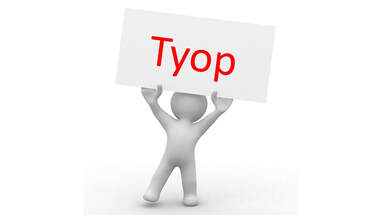 But I’m not talking about an error every third or fourth page, or every second page or even every page. I am talking about an error in every paragraph and sometimes more than one. There are punctuation errors, typos and the use of the wrong homonyms. In some cases, the errors are so bad they change the meaning of a sentence. To give one example, in an historical note the author uses the word ‘temerity’ when it is quite clear he means ‘tenacity’. Sentences have to be read twice or three times to decipher them because a lack of punctuation means they can be interpreted in more than one way and it is hard to work out which way the author actually meant us to interpret them.. So much for proof-reading. But it doesn’t stop there, because the editing or, more likely, the lack of editing makes the books difficult to read and impacts on the entertainment value.  In Book 1, so little happens in the early chapters that I was thinking of giving up reading the book out of boredom. It made me wonder how many readers had used the ‘look inside’ feature on Amazon and done just that, passing the book by to go and look for something that grabbed their interest a bit quicker. And it is a shame if they did that because, as I said above, the stories are quite good if you can just get passed these issues. Later, some of the descriptive passages become repetitive or rambling. In some places the paragraphs make it hard to follow the plot and in other instances the paragraphs don’t make sense. "And now we get to the moral of this story " To give another example to illustrate my point about the editing, at one point the author describes the light fading – when it was dawn and the light would be increasing. He probably meant that the darkness was lessening, or that the light was improving, but that’s not what he wrote. It’s the sort of thing an editor would point out and which is easy to correct. And now we get to the moral of this story and the reason I hope you Indie authors have read this far. Because these books deserve to be best-sellers but will never become so. The poor editing and proofreading make them appear amateurish.  Now we come to a question that you might like to answer. How would your books stand up by comparison? Are you sabotaging yourself because you aren’t a good editor or proof-reader? It is entirely possible that you are if you aren’t getting other people to cast their eyes over your work. Both editing and proof reading take time, we know. And anything that takes time usually costs money if we want someone else to do it for us. So, how do we avoid the sort of mistakes that I have described above, but without it costing us anything?  You are not alone You are not alone This is where the ‘writing community’ can help. We can buddy up and look at each other’s work and tell the author which bits work for us and which bits don’t. At the very least we can spot the typos, punctuation errors and incorrect homonyms that I referred to earlier. And, best of all, we get to read a free book as well. If we are doing things properly, then we will be editing and proofreading our own work anyway, so all we would be doing would be expending the same amount of time doing it for someone else, while they do ours. It costs us no more time than it was going to cost us anyway. Here at Selfishgenie Publishing we have a golden rule that no book is published until it has been read at least 4 times by a minimum of two different people (that’s twice each, not 4 times each). If anything slips through the net after that, then at least we have done our best to prevent it. And if you weren’t going to edit and proofread your own work – well, you may want to read this blog again and see if there is anything you may wish to reconsider. If, by any chance, the author of the books I have referred to is reading this and recognises my references, please feel free to contact me (use the general enquiries email address given on our ‘contact’ page) and I’ll be happy to offer some feedback on the work. There is still the opportunity to withdraw these books from sale, sort them out and turn them into the best-sellers they could be. If you have enjoyed this blog and want to be sure not to miss future posts, why not sign up to our newsletter? And if you do, we'll send you a free eBook. Just click the button below to find out more. Just a reminder, we are open for submissions of new work. Just check out our contacts page for more information.
 All Indie authors need an advertising budget. There, I’ve said it. You may not want to read that and you may now be sticking your fingers in your ears and going “la la la”, but I’m afraid it’s true. Let’s start from basics. Nobody is going to stumble on your book by accident. It may be the best book ever written, but if nobody knows it exists then they can’t read it. 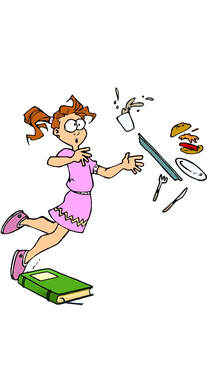 Nobody is going to stumble on your book by accident! Nobody is going to stumble on your book by accident! You will be aware that social media can be used to bring your book to the attention of a wider audience for free, but it has a limited utility. Once your post or Tweet about your book has been read by your “friends” or “followers” they will do one of two things. They will either buy the book (hooray) or they will ignore it (boo). After that, no matter how often you post or Tweet about your book, nothing will happen. The people who bought your book when they first saw the post aren’t going to buy it again and the people who ignored it first time around are going to continue to ignore it. This means you have to keep finding new “friends” and/or “followers” who haven’t previously seen your message and who will either buy your book or ignore it. And finding those people is a relentless slog which takes up more and more of your time. And your time is valuable. You should be spending your time writing new books, not trawling through social media trying to attract new people.  Which is where advertising comes in. There is a thing in commerce called “spend to save”. The basic principle is that if you spend money now on certain things, you will save money in the longer term. For example, if you spend £1,000 on replacing your existing light bulbs with more energy efficient light bulbs, you will save more than £1,000 over the next five years, thus repaying the initial outlay and making a profit. This is also known as “return on investment” (ROI). The same principle applies in advertising, though here you might call it “spend to earn”. If you spend £x on advertising now, you will earn £y back in sales, so the advertising cost is paid back and you get your ROI. This is something that is well understood across business. If advertising didn’t pay for itself, then all those adverts that we see on-line, on TV, in the cinema and that we hear on the radio, just wouldn’t be there. Advertising has to pay for itself or or nobody would do it.  But you are an Indie author. You don’t have much money. How can you possibly afford to advertise? Fortunately, the same social media we used to promote our book for free, also offers the facility to advertise that isn’t expensive. You may have 5,000 followers on Twitter, but a paid advertisement has the potential to reach millions of people. The same applies to Facebook and to all the other forms of social media. It even works by paying for advertising on Amazon. There are some good practices that should be born in mind if you are going to advertise and I’ll touch on these now. We have covered most of them in previous blogs, so we won’t go into detail here. 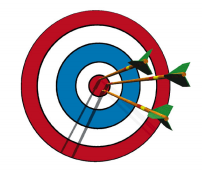 Target your audience. Make sure the advert is aimed at the right people. There’s no point in paying for your book to be promoted to people who don’t read books or who don’t read books in your genre. Time your advertising. Not everyone is on social media 24/7, so find out when your audience is likely to be on-line and time your advertising accordingly. Change your message. People get annoyed by repetition, so each advert should be different from the one before. This will require you to be creative – but you’re an author, you are already creative. Make your adverts eye-catching. People are more attracted to pictures than to words and they are more attracted to moving pictures than to still ones.  Think long-term. Every new reader that you attract with an advert is likely to stay loyal if they enjoy your book. So that’s a sale in the bag for your next book and all the others you are going to write – and you won’t have to pay for those sales. Save to spend. Set aside money from each sale to help pay for your next advert. I would recommend 10% minimum from the income from each sale.  You shouldn’t waste money on those businesses (mainly on Twitter) who offer to promote your book to their gazillion followers. Their output isn’t targeted and there is very little evidence that it produces results. You might as well stand in the street with a megaphone shouting “buy my book”. In fact, you’d probably get more sales that way (along with a restraining order). How much should you spend? Well, a Facebook advert running for 4 days will cost about £25 ($30) and that should return you enough sales to justify the cost. Other social media channels and Amazon offer similar levels of pricing. How often should you advertise? As often as you can afford it. I would suggest at least one advert per month and if you can’t afford that, try for one very two months. Have I convinced you? If not, then there is only one thing that will. Give it a try, just once, and see what happens. Experience costs money, but for some people it is the only way they will be convinced. But, let’s face it, if your book isn’t selling, then doing nothing isn’t really an option if you want that to change. If you have enjoyed this blog or found it interesting, make sure you don't miss the next edition by signing up for our newsletter. If you do, you can get a full length novel for FREE. Just hit the button. 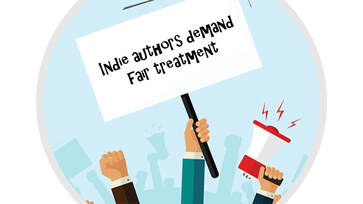 There is a subtle prejudice against Indie authors that isn’t present in other forms of creativity. I’m not talking about the big prejudices, like those involving race, religion, gender, sexuality etc. I wouldn’t want to lump this in with those as it doesn’t have the same sort of impact on those who suffer. No, I’m just using the word in its original meaning, which is to ‘pre-judge’. In other words, to make assumptions that aren’t based on any real evidence. That happens with the big prejudices in a big way and is more far reaching. Pre-judging an Indie author probably won’t affect their ability to earn a living, get housing or fair treatment by the police, so it isn’t in the same league. But it matters to the Indie authors, all the same. Indie authors are prejudged in a way that no other art form appears to be.  Imagine you are walking along the street and see a sign outside a pub. It says “Appearing here tonight, Fred Bloggs, musician. Entry £5.” Would you consider parting with a fiver to see him perform? There might be some questions you would want to ask, such as what sort of music Fred plays and what price the beer is at the bar, but I think a great many people would take a chance and part with their fiver. Or maybe if it said “Comedian Fred Bloggs.” Again, you might have a few questions, but you might well decide to go along. You would give Fred Bloggs a chance. 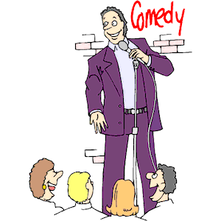 What you probably wouldn’t say is “Fred Bloggs has never had a hit record, so I’m not going.” Or “Fred Bloggs has never appeared on Live At The Apollo (a TV comedy showcase in the UK) so he can’t be very funny.” In other words, you wouldn’t pre-judge Fred Bloggs. If his music or comedy style was to your taste, you might well take a chance and buy a ticket, even though you had never heard of him. But when presented with a book by an Indie author, how many people say “He (or she) hasn’t had a best seller, so they can’t be very good, so I’m not going to part with my money.” Because that seems to be what happens to Indie authors with monotonous regularity. People will pay £5 to hear an unknown singer in a pub, but they won’t pay the same amount to read an unknown author.  Being judged by different standards Being judged by different standards For some reason, authors are judged by different standards to other creative artists. So, what is the difference? It is something of a mystery to us here at Selfishgenie Publishing, as I’m sure it is to all those Indie authors who are reading this right now. Is there an answer to this? Only in the form of a Catch-22 type scenario. You will sell more books when you become famous, but to become famous you first have to sell more books. 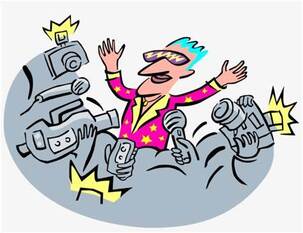 Celebrity Author Celebrity Author It is sickening to see many famous people with limited writing talent getting ‘their’ books published just because of their name. The publishers know that the book will sell because of the name on the cover, so they’ll hire a ghost writer to make the book readable. That’s not to say all celebrity authors are bad. I’ve read a few that were pretty good (Richard Osman, to name but one). But we know that a footballer or reality TV ‘star’ who can barely string 3 words together to form a meaningful sentence, isn’t going to be capable of writing War And Peace. But there is one thing all the Indie authors can do to support each other – and I don’t mean doing all those annoying #writerslift thingies.  #WritingCommunity - support Indie Authors! #WritingCommunity - support Indie Authors! Just pick one Indie author a month and buy their book, then post reviews on all the relevant sites. You don’t have to go on Twitter to ask for recommendations - most of those are just people trying to boost their follower numbers anyway. No, all you have to do is quietly browse through the profiles of your own followers who are authors and see what sorts of books they write. If they are in the genre you read, buy a copy. If not, move on to someone else. There’s no need to make a big deal of it; no need to Tweet them to say ‘I bought your book’ - that looks like you are looking for thanks and sounds needy. It may even be interpreted as a suggestion that they buy your book in return, which isn't what is intended. But if you post a review, you could Tweet the link to that so other people know how good the book is and may be encouraged to buy it. We often use the hashtag #WritingCommunity, so let’s act like a community and support each other, not through words alone, but also through deeds. And the best present you can give an Indie author is to buy one of their books. And if you are looking for a place to start, then you are already on a suitable website. Just click the Books tab at the top of the page. If you have enjoyed this blog and don't want to miss the next edition, be sure to sign up for our newsletter. We'll be so grateful, we'll even send you a free ebook. Just click the button below. |
AuthorThis blog is compiled and curated by the Selfishgenie publishing team. Archives
June 2025
|
 RSS Feed
RSS Feed